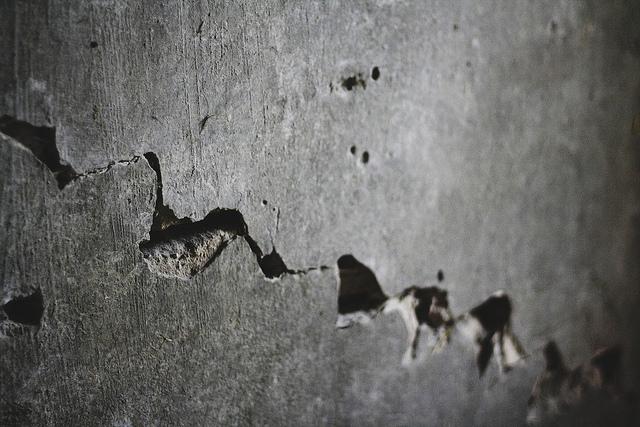CT Scan
Posted By Stephanie Huang on March 26, 2015 @ 11:09
This week in Counterterrorism (CT) Scan, we look at Australian foreign fighters, Jabhat al-Nusra’s quiet rise, the Tunis and Yemen attacks, terror threats in Europe and the Asia-Pacific, how terrorist groups work, Boko Haram and the impending metadata laws.
Firstly, why are so many foreign fighters Australian? Australia’s drawing international scrutiny [2] for its disproportionate number of Islamic State recruits (the Australian Government currently estimates that there are 90 [3], as compared to 100 [4] fighters from the US, which has a population 13 times the size). Australia falls behind countries—including Belgium, Denmark and Sweden—that are producing foreign fighters in even larger numbers.
Explanations are mixed. Terrorism expert Greg Barton cites Islamic State’s pull factor as a ‘predatory recruiter that goes after individuals one by one’. ABC’s Radio National has an in-depth story here [5] documenting how Islamic State recruiters court Australian youth through sporting activities before moving in for the kill.
Islamic State has gained more notoriety calling [6] for the killing of 100 American military personnel online, claiming that military servers were hacked to obtain the members’ details. However, the information was already public [7]. The Economist explains [8] how cracks in Islamic State are forming; in particular, its goal of creating a model state is failing. RUSI’s Raffaello Pantucci suggests [9] that this could be used to debunk the romanticised Islamic State narrative.
While all eyes have been on Islamic State, experts have observed that Jabhat al-Nusra is ‘quietly rising’ [10] in Syria, and is likely to be around in the country longer than Islamic State.
In the wake of the Tunis museum massacre [11] (for which Islamic State hastily claimed responsibility [12]), President Beij Caid Essebsi has sworn to wage a ‘merciless war against terrorism’ [13]. The President alluded to new laws [14] building on the idea that ‘liberties cease when abuses begin’. See here [15] for the context of terrorism in Tunisia. As to why the country is a terrorism hotbed, Christine Petré in Foreign Policy suggests [16] that the nation’s fragile democracy may in fact be the key cause:
‘Lacking the heavy-handed security apparatus of an authoritarian state, but not yet strong or prosperous enough to offer its citizens a better life, Tunisia has become fertile territory for extremist recruiters.’
Turning to the suicide bombings in Yemen [17], Brian Whitaker examines [18] the significance of the attacks, warning that it may signal that the state has ‘finally tipped over the edge’. Unlike Islamic State [19], Al-Qaeda in the Arabian Peninsula (AQAP) was quick to deny connection with the bombings, and here’s why [20].
In Europe, French CT officials warn [21] that the risk of a terrorist attack in the country is ‘inevitable’, while a UK report [22] indicated that an attack is ‘highly likely’ on British soil. As for coordinated action, see here [23] for what the EU’s CT coordinator Gilles de Kerchove thinks Europe should do to address the terrorism threat.
At the community level, British Muslim women’s group Inspire [24] (sharing the same name as the infamous al-Qaeda publication) has been hosting conferences [25] as part of their national #makingastand [26] campaign, providing practical advice to women as to how they can help counter extremism and promote peace.
In the Asia-Pacific, a bombing in Jakarta last month was linked [27] to returned foreign fighters, feeding the concerns [28] that this group threatens Indonesia’s security. Against this backdrop, Indonesia hosted a CT conference [29] on Monday, which found that ‘hundreds of thousands of dollars’ [30] are flowing from Australia to Indonesian groups that support Islamic State. Conversely, at a conference held in Jaipur, India last week, Indian Home Minister Shri Rajnath Singh declared [31] that Islamic State’s effect on youth in India—the nation with the second biggest Muslim population—is ‘negligible’, due to ’complete integration (of Muslims) into the national mainstream’.
Why do terrorist groups have so much traction these days? Brad Allenby at Slate thinks [32] that part of terrorist groups’ appeal is that they tap into rejections of modernity. As for predicting which groups become terrorist organisations,International Organization found [33] that militant groups with leadership problems are more likely to lead to terrorist activity.
Looking ahead, the Senate is now debating [34] the contentious metadata bill that the Australian government hopes to pass by the end of the week. To find out more about the raft of Australian CT laws since 9/11, take a look at the recently released book [35] Inside Australia’s Anti-Terrorism Laws and Trials, which cautions that these laws are likely to ‘erode the very democratic freedoms they are designed to protect’.
Article printed from The Strategist: https://aspistrategist.ru
URL to article: /ct-scan-6/
URLs in this post:
[1] Image: https://aspistrategist.ru/wp-content/uploads/2015/03/8352955539_0beebb3eef_z.jpg
[2] international scrutiny: http://bigstory.ap.org/article/fe94ee26c9a14e1691244ac11b8fa56f/australia-puzzling-hotbed-islamic-state-recruiting
[3] 90: http://www.foreignminister.gov.au/transcripts/Pages/2015/jb_tr_150227a.aspx?ministerid=4
[4] 100: http://icsr.info/2015/01/foreign-fighter-total-syriairaq-now-exceeds-20000-surpasses-afghanistan-conflict-1980s/
[5] here: http://www.abc.net.au/radionational/programs/backgroundbriefing/2015-03-22/6325498
[6] calling: http://www.nytimes.com/2015/03/22/world/middleeast/isis-urges-sympathizers-to-kill-us-service-members-it-identifies-on-website.html?ref=topics
[7] already public: http://www.thedailybeast.com/articles/2015/03/23/isis-hackers-googled-their-hit-list-troops-names-were-already-on-public-websites.html
[8] explains: http://www.economist.com/news/leaders/21646750-though-islamic-state-still-spreading-terror-its-weaknesses-are-becoming-apparent
[9] suggests: http://www.abc.net.au/am/content/2015/s4202603.htm
[10] ‘quietly rising’: http://www.nydailynews.com/news/world/nusra-front-quietly-rises-syria-outlast-isis-article-1.2160729
[11] Tunis museum massacre: http://www.theguardian.com/world/2015/mar/18/eight-people-killed-in-attack-on-tunisia-bardo-museum
[12] responsibility: http://www.wsj.com/articles/death-toll-in-tunisia-tourist-massacre-rises-to-21-1426770597
[13] merciless war against terrorism’: http://www.straitstimes.com/news/world/more-world-stories/story/tunisia-attack-president-vows-merciless-war-against-terrorism-re
[14] new laws: http://www.bloomberg.com/news/articles/2015-03-22/tunisia-to-issue-terrorism-law-soon-president-essebsi-says
[15] here: https://www.rusi.org/analysis/commentary/ref:C550AC1BF722C3/#.VRHgrvmUfC9
[16] suggests: http://foreignpolicy.com/2015/03/20/the-jihadi-factory-tunisia-isis-islamic-state-terrorism/
[17] suicide bombings in Yemen: http://www.washingtonpost.com/world/middle_east/yemen-presidents-southern-stronghold-attacked-by-rivals/2015/03/19/480d4dd4-ce9c-11e4-8730-4f473416e759_story.html
[18] examines: http://www.theguardian.com/commentisfree/2015/mar/23/yemen-brink-catastrophe-mosque-attacks-civil-war
[19] Unlike Islamic State: http://www.abc.net.au/news/2015-03-21/yemen-mosque-bombings-among-countrys-worst/6338300
[20] here’s why: http://www.longwarjournal.org/archives/2015/03/analysis-why-aqap-quickly-denied-any-connection-to-mosque-attacks.php?utm_source=feedburner&utm_medium=email&utm_campaign=Feed%3A+LongWarJournalSiteWide+%28The+Long+War+Journal+%28Site-Wide%29%29
[21] warn: http://www.thelocal.fr/20150323/france-facing-unprecedented-terror-threat
[22] report: https://www.gov.uk/government/uploads/system/uploads/attachment_data/file/415708/contest_annual_report_for_2014.pdf
[23] here: http://www.huffingtonpost.co.uk/european-parliament-web-team/eu-radicalisation_b_6907952.html?utm_campaign=engagor&utm_content=engagor_MzY4ODE0Mw%3D%3D&utm_hp_ref=tw&utm_medium=social&utm_source=twitter
[24] Inspire: http://www.wewillinspire.com/
[25] conferences: http://www.wewillinspire.com/making-a-stand/
[26] #makingastand: https://twitter.com/search?q=%23makingastand&src=tyah&lang=en
[27] linked: http://www.smh.com.au/world/jakarta-bombing-linked-to-returning-is-fighters-20150325-1m7n0n.html
[28] concerns: http://www.theguardian.com/world/2015/mar/11/indonesian-jihadis-could-be-galvanised-return-isis-fighters-analyst
[29] CT conference: http://www.abc.net.au/news/2015-03-24/indonesia-holds-conference-on-anti-terrorism-measures/6342636
[30] ‘hundreds of thousands of dollars’: http://www.sbs.com.au/news/article/2015/03/24/australian-funds-help-recruit-and-send-indonesian-fighters-join
[31] declared: http://indianexpress.com/article/india/india-others/happy-that-the-influence-of-islamic-state-on-the-indian-youth-is-negligible-rajnath-singh/?utm_source=Sailthru&utm_medium=email&utm_term=%2AAfPak%20Daily%20Brief&utm_campaign=2014_The_South_Asia_Daily%203-19
[32] thinks: http://www.slate.com/articles/technology/future_tense/2015/03/isis_and_other_neomedievalists_reject_technology_modernity.html
[33] found: https://www.academia.edu/5365151/Explaining_Terrorism_Leadership_Deficits_and_Militant_Group_Tactics_forthcoming_in_International_Organization_with_Phil_Potter_
[34] debating: http://www.abc.net.au/news/2015-03-24/metadata-debate-in-the-senate/6344246
[35] book: http://www.thesaturdaypaper.com.au/2015/03/31/inside-australias-anti-terrorism-laws-and-trials/14268564001634#.VRIOO_mUfC8
Click here to print.
